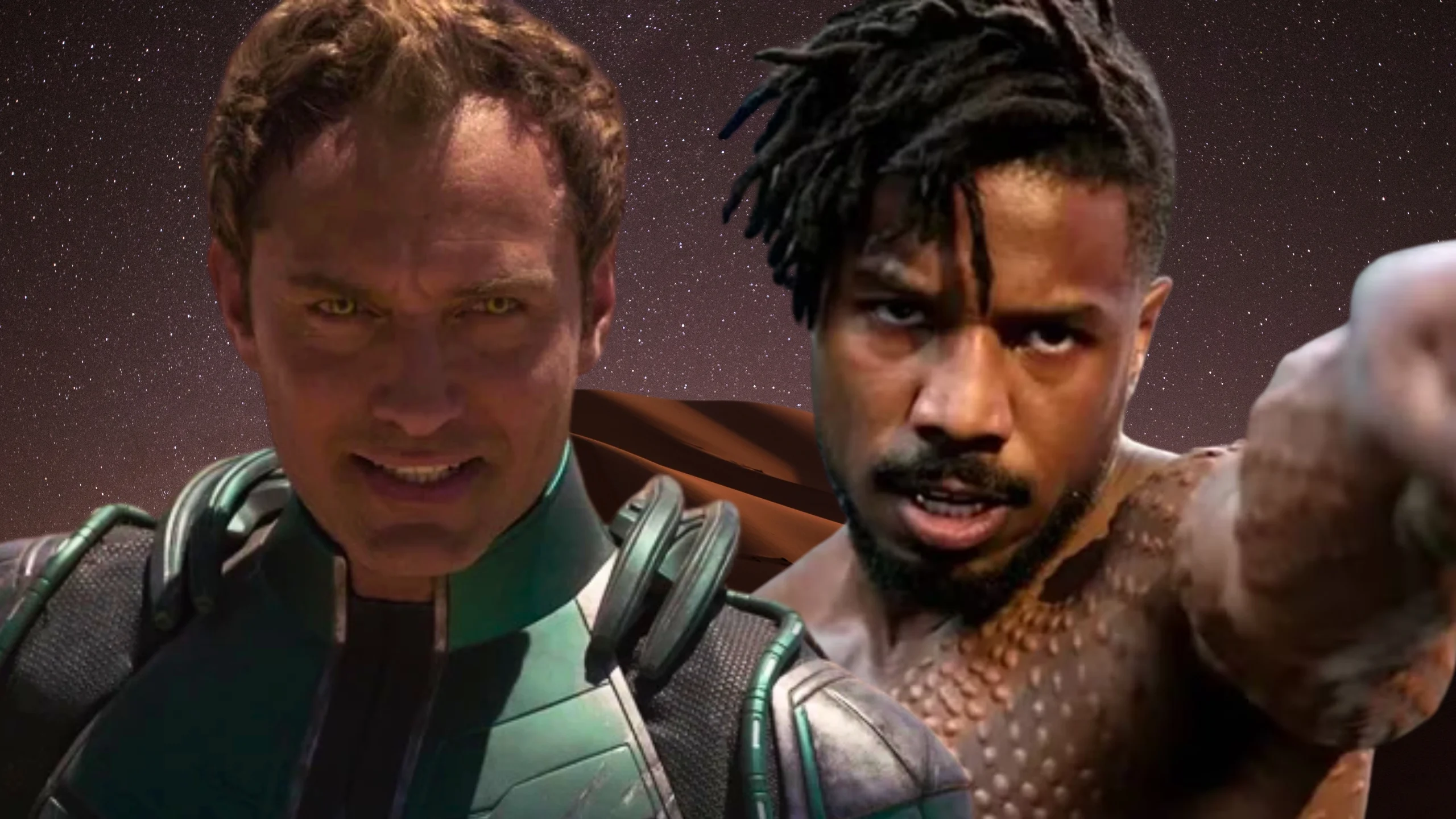I am a storyteller. I write comic books, essays, short stories, and most of what I create has to do with religion, mythology, and Indian culture, which is why I often run into people who don’t like to touch mythology or would rather not have storytellers reinterpret mythology. But why is this? I think it is easy to assume that people do these things because they’re stupid and they don’t know any better, but that’s not really a very productive answer. So, I have decided to make this the second episode of my vlog about why people don’t like their old stories turned into new stories.
If you have a child or have ever dealt with children, you know what it’s like to tell them the same story over and over again. And that is because they just like their stories so damn much. I think for the people who don’t want mythology reinterpreted, it’s the same kind of thing because they don’t want their old stories told in new ways. I think it’s partly due to insecurity. They don’t want their old stories to change. They want Ramayana to remain a good adventure story. They want Mahabharata to remain a familiar old epic about war. But is that all?
To be honest, this is not really a uniquely right-wing problem. Such responses to new stories come from fandoms in science fiction, fantasy, and the comic book world as well. This is why many new interpretations of stories like Star Wars or Star Trek are often resisted by old fans. They don’t want the stories that they have grown up with to change. And the passion with which people do this is almost religious.
I mean, I know that superheroes have been referred to as modern-day gods by some people, but I hadn’t really understood what that means until I learned about Heat. In 1994, fans of Hal Jordan, the DC Comics character whose alter ego is Green Lantern, created a group called H.E.A.T. It stood for Hal’s Emerald Advancement Team, and they did this because DC Comics had recently made some major changes to Hal Jordan. They had decided that Hal Jordan would no longer be Green Lantern, and that mantle would be taken up by a person named Kyle Rayner. In addition, Hal Jordan was turned into, for lack of a better phrase, a psychotic murderer.
The fan reaction was understandable. After all, DC had turned this into this. What is harder to understand is why they went to the extent that they did. Fans took out full-page advertisements in newspapers to pressure DC Comics to change their mind. In addition, some of the writers on DC’s staff also started to get death threats. I know it doesn’t seem like much in this day of social media bullying, but this was 1994, so that kind of takes care of the argument that toxic fandoms are a thing of the social media age. We have always been passionate about stories.
It reminds you a little bit of our very own controversy, doesn’t it? America has modern-day gods. What we have are ancient superheroes. The end result remains the same. Am I saying this is a good thing? No, but I am saying this is a natural thing. There are good reasons to explain why human beings have such strong emotional reactions to stories. There is a reason people cry in cinema halls despite knowing full well that the people they are watching on screen are being paid to pretend. And it goes far beyond crying in cinemas. We are a species that is not only prepared to kill for the sake of a story but also to die for one.
Yuval Noah Harari, the author of the book Sapiens, seems to offer an explanation for why this is so. He says in his book that apes can communicate verbally, but the range of what they communicate is severely limited. For example, one monkey may point at a tree and make a sound that means food, thereby communicating to the apes around him that there is food to be found on that tree. Or the monkey can make sounds that mean danger or go away.
Human beings also communicate verbally, but we underwent something called the cognitive revolution, and this gave rise to our ability to communicate complex ideas. So while we, like our ancestors, could also point at things and say food, over time we became capable of saying things like, “Follow the river until you reach the bend and then walk east until you reach a tree with yellow flowers.” And sometime later, we started saying things like, “The tree at the bend of the river is watched over by the Wolf Guard. We are the children of the Wolf Guard and therefore that tree is ours.”
We became capable of packing huge amounts of information in the sounds that we produced, and this allowed us to convey information about space and time and references about tastes, smells, and colors to our fellow human beings. It wasn’t long before we started naming things, and once we started naming things, well, we started telling stories. The river got a name. The tree also got a name. The land between the river and the tree also got a name, and the people who lived in those lands began to get called “children of the river” or “people of the tree” or “created by the Wolf Guard.” You get the idea. These identities were based on stories.
People with these identities started coming together, living together, helping each other, and creating society, creating civilization. Without the story, there was no community, and without the community, people were unlikely to get the benefits that came with community. So, if the Lion Tribe came to claim the resources that the Wolf people had already claimed, you could count on the help of the Wolf people because they shared your story.
Sapiens is a fascinating book, and you should definitely spend some time reading it if you have not already done so. But my point actually is much simpler. My point is that stories, which start out as simple communication, become over time such enormous beasts that the listener becomes a character. So, when you see a man claiming to belong to the same race as his gods, or you see a man pretending to be Batman at Comic-Con, you’re basically looking at the same thing. It’s just that one person is playing an old story and the other is playing a relatively new story. The old story is so old that we have literally forgotten it is a story.
So it is not really surprising that people think an attack on the story, their story, the story that they are a part of—either because of tradition or because they just really like it—is an attack or alteration against them. They believe that if the story is changed, they themselves will cease to exist. It’s not surprising that they think that if the Ramayana and the Mahabharata do not remain what they have always remained for them, they will stop existing. That they will no longer remain what they have always been.
In any tribe or society, priests, monks, and religious leaders are the ones who are the keepers of the story. They’re more than just storytellers. These storykeepers are also keepers of their community. Their job is to not only look out for the people who are already in the community, but to expand the community, and they do so by telling stories. Another way of keeping the community together is to prevent people from leaving it. This is why even today, many communities do not take kindly to people leaving. Some religions have the death penalty for apostasy. All over India, in caste-based communities, people sometimes even face death for the crime of marrying outside of the community. Communities do not forgive people who break out, either by converting to another faith, marrying outside the community, or even sometimes by just saying something that challenges the story.
We have all heard of nightmare scenarios presented by conservatives all over the world, where they worry about the extinction of their race—Hindu, Muslim, white people, etc.—and it’s not as if only religions are stories. Many modern societal constructs like democracy, equality, patriotism, and nationalism are also stories, and they serve the same function. They keep tribes together. So, you may hear similar refrains from people on the left as well—democracy, the idea of India. Everyone tries to protect their story.
Why then do storytellers like me insist on telling new stories? Why can’t we be content with what has already been told? Why can’t we be happy with what has existed for thousands of years and continues to serve us well? Why do we mess with old stories when the love that people feel for old stories is only natural? Well, to start with, not everything natural is good for us. Diarrhea is natural. Cancer is natural. Tornadoes and earthquakes are natural, and all of them are actually quite bad for us.
We don’t decide what to do based on what is natural. We decide on the basis of how much these things contribute to our well-being. A nation comes into being when we name a piece of land. A tribe comes into being when people living on that piece of land start defining themselves as characters in the same story. A patriot or a nationalist is a character in the story of his or her nation. Just as a devotee is a character in the story that is his or her religion—be they Hindu, Muslim, or Christian.
The problem is society being dominated by only one story or one kind of story. The problem is people turning into beings who cannot define themselves any other way except for that one story. Tribalism got us where we are right now, and I’m not going to comment on whether this is a good place to be or a bad place to be. It is simply a fact that we are here. But tribalism is not going to take us into very interesting futures, especially when those futures are based on a singular story. The tribal does not acknowledge that not only is there plenty of space for many stories to exist side by side, but it is also absolutely necessary for many stories to exist side by side. Even if some of those stories sometimes contradict each other.
Stories can obviously provide structure to society. But what is structure for one person may be a prison for another person. And when a society becomes too full of prisoners, it falls apart.



Leave a Reply